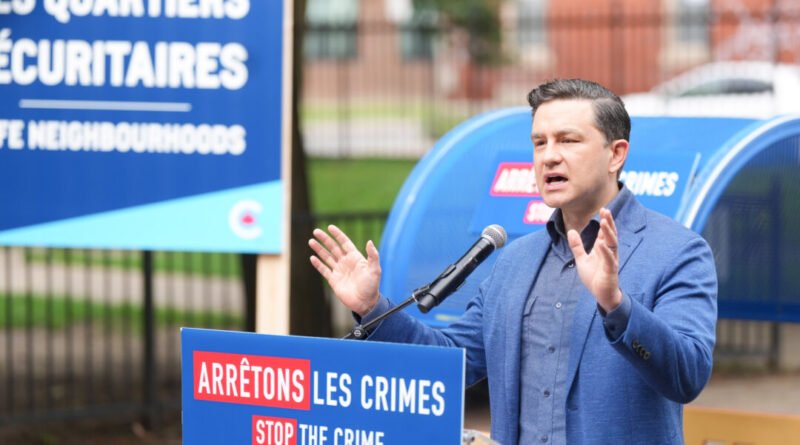Poilievre willing to explore mandatory treatment for drug addiction, seeking further research
Conservative Leader Pierre Poilievre expressed interest in exploring a policy akin to Alberta’s proposed approach of compulsory intervention for drug addiction in specific cases. He mentioned that he would need to delve deeper into the issue before making a decision.
“I need to study it more. I need to understand how it would work,” Mr. Poilievre stated during a press conference on July 25 when questioned about the policy.
He emphasized, “I want everyone struggling with drug addiction to receive treatment and rehabilitation to overcome their addiction. However, I am unsure whether it is feasible to compel someone who doesn’t wish to be rehabilitated.”
The Conservative leader mentioned that he desires to see arguments “for and against” the proposed policy before forming an opinion.
“I am uncertain if it is possible to effectively rehabilitate individuals who have not committed a criminal offense and are unwilling to change. If there’s evidence supporting it, I am open to exploring it, but currently, I would need more evidence,” he added.
If someone is in imminent danger of causing harm, Premier Danielle Smith emphasized the importance of lifesaving measures to help them recover effectively. She mentioned the necessity of ensuring community safety and preventing drug-induced crimes.
The act seeks to address underlying mental health issues contributing to the drug crisis while mitigating social disorder and violence linked to drug-related crimes.
Poilievre Questions Safer Supply
Mr. Poilievre criticized the federal government’s drug policies during the conference, especially the “safer supply” pilot initiatives in Toronto, Vancouver, and Victoria. These projects, running since 2020, aim to provide prescribed opioids as a substitute for the illegal drug market for drug users.
Mr. Poilievre accused the Liberal government of distributing taxpayer-funded opioids, which he believes are circulating among youth. He referenced a memo by federal Addictions Minister Ya’ara Saks exploring “national decriminalization” as part of a broader strategy in combatting the crisis.
The Epoch Times sought comment from Ms. Saks, but no response was received immediately.
Prime Minister Justin Trudeau defended B.C.’s decriminalization policies, emphasizing a public health-focused approach to tackle the overdose crisis rather than punitive measures. He highlighted the importance of a public health strategy for individuals dealing with addiction.
Mr. Poilievre proposed supporting drug prevention programs, ending funding for safe supply projects, and increasing penalties for severe drug trafficking offences. He also mentioned a proposal by Conservative MP Tracy Gray advocating drug treatment as part of the sentence for Canadians incarcerated for drug-related crimes.
“The judge could mandate that while in prison, individuals must maintain abstinence and receive top-notch treatment behind bars,” he explained. “It appears logical to me because they are already in prison and can use that time to overcome their addictions.”





